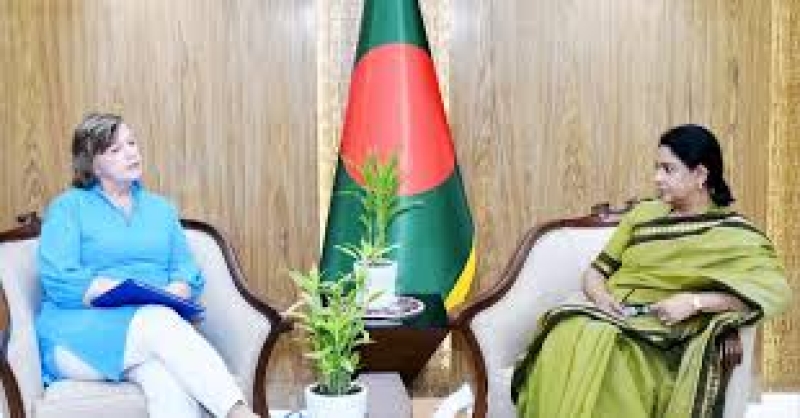- FFD4 Must Deliver for the World’s Most Vulnerable Nations |
- Observe July Uprising Annually to Guard Against Autocracy |
- Human Rights a Key Driver of Climate Change Progress |
- Security measures at Shahjalal Airport enhanced |
- Polls in early next year: Prof Yunus tells Marco Rubio |
Env Adviser, Unicef stress youth role in climate action

Environment Adviser Syeda Rizwana Hasan on Tuesday stressed the need for ensuring accountability, coordination and active participation of young people in climate adaptation initiatives.
“Youth representatives must be included in monitoring mechanisms for infrastructure and water-related projects, including those undertaken by the Water Development Board,” Rizwana said during a meeting with a high-level Unicef Bangladesh delegation led by Country Representative Rana Flowers at the Bangladesh Secretariat.
She also underscored the importance of adopting safe and practical alternatives, such as advanced technologies, in place of incineration for wastewater management and medical waste disposal.
The meeting emphasised strengthening joint efforts to tackle the climate crisis through education, engagement of the social sector and increased youth participation.
Highlighting the growing risks climate change poses to children and adolescents, such as floods, malnutrition and disrupted education, Rana Flowers reaffirmed UNICEF’s commitment to placing young people at the heart of climate solutions.
She proposed expanding youth consultations across districts to gather insights from the grassroots and foster ownership.
She further suggested creating a structured mechanism for regular youth engagement with the ministry, particularly on issues of climate resilience and water resource management.
To raise awareness, the Unicef team proposed a collaborative documentary series tailored for schools, spotlighting key environmental messages voiced by children.
The adviser welcomed the initiative, recommending its integration into school curricula, alongside teacher training and student capacity-building.
Both parties agreed to develop a joint roadmap for youth-focused environmental education and localised climate actions. This would include recycling initiatives, waste segregation programs, and student-led emergency preparedness drills.
The ministry and Unicef expressed strong optimism about deepening this collaboration to empower the next generation of climate leaders and drive forward Bangladesh’s sustainable development agenda, reports UNB.

